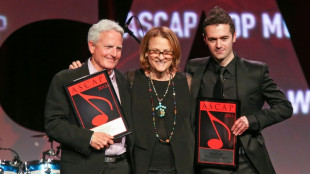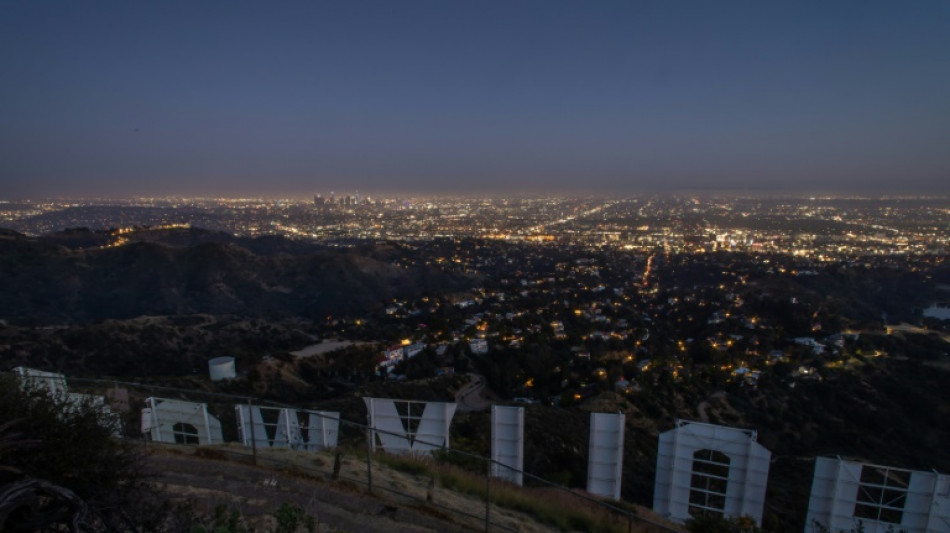
-
 Bowlers, selectors under fire after Australia's T20 World Cup exit
Bowlers, selectors under fire after Australia's T20 World Cup exit
-
Racism allegations overshadow Real Madrid victory as PSG win in Champions League

-
 Japan's Nakai shines on ice as Frostad soars to Olympic big air gold
Japan's Nakai shines on ice as Frostad soars to Olympic big air gold
-
Japanese teen Nakai leads Sakamoto after Olympic women's short programme

-
 Sweden to face USA in Olympic men's ice hockey quarter-finals
Sweden to face USA in Olympic men's ice hockey quarter-finals
-
Alexander-Arnold hits out at 'disgusting' alleged Vinicius racism

-
 Bird flu ravaging Antarctic wildlife, scientist warns
Bird flu ravaging Antarctic wildlife, scientist warns
-
Nakai leads Sakamoto in Olympics after women's short programme

-
 Guirassy guides Dortmund past Atalanta in Champions League play-offs
Guirassy guides Dortmund past Atalanta in Champions League play-offs
-
Vinicius stunner helps Real Madrid edge Benfica in play-off marred by alleged racism

-
 Doue inspires PSG to comeback Champions League win in Monaco
Doue inspires PSG to comeback Champions League win in Monaco
-
'Climate cult' hurts Europe's economy, US energy secretary tells AFP
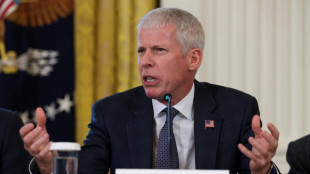
-
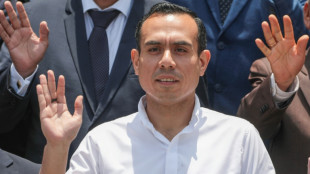 Peru's presidential musical chairs
Peru's presidential musical chairs
-
France arrests nine over far-right activist's killing
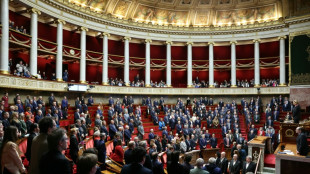
-
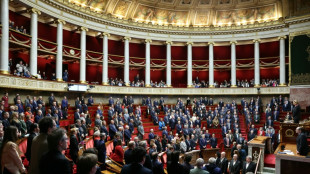 France arrests seven over far-right activist's killing
France arrests seven over far-right activist's killing
-
Frostad dethrones Ruud in Olympic freeski big air thriller

-
 Galatasaray thrash 10-man Juve in Champions League play-off 1st leg
Galatasaray thrash 10-man Juve in Champions League play-off 1st leg
-
Woods return timeline uncertain, but won't rule out Masters

-
 Dozens of film figures condemn Berlin Film Festival 'silence' on Gaza
Dozens of film figures condemn Berlin Film Festival 'silence' on Gaza
-
Iran, Ukraine talks spark diplomatic merry-go-round in Geneva

-
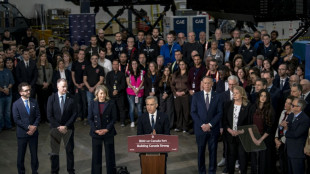 Canada launches huge defence plan to curb reliance on US
Canada launches huge defence plan to curb reliance on US
-
US says will match alleged Chinese low-yield nuclear tests
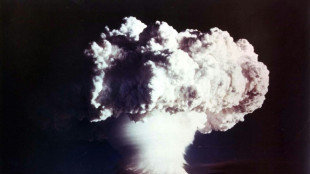
-
 Alcaraz battles into second round of Qatar Open
Alcaraz battles into second round of Qatar Open
-
Russians, Belarusians to compete under own flags at Paralympics: IPC tells AFP

-
 Bayer proposes class settlement for weedkiller cancer claims
Bayer proposes class settlement for weedkiller cancer claims
-
Gauff, Rybakina cruise into Dubai last 16

-
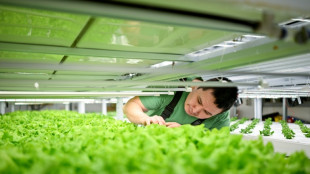 Greenland entrepreneur gambles on leafy greens
Greenland entrepreneur gambles on leafy greens
-
Father of US school shooter goes on trial on murder charges

-
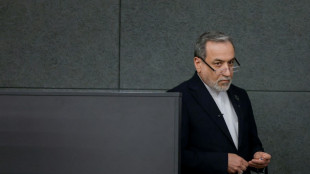 Iran, US agree on 'guiding principles' for deal at Geneva talks: Iran FM
Iran, US agree on 'guiding principles' for deal at Geneva talks: Iran FM
-
Warner Bros. gives Paramount one week to outbid Netflix

-
 Russians, Belarusians allowed to compete under own flags at 2026 Paralympics: IPC tells AFP
Russians, Belarusians allowed to compete under own flags at 2026 Paralympics: IPC tells AFP
-
Ukrainian wife battles blackouts to keep terminally ill husband alive
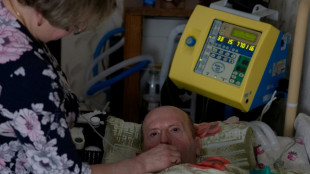
-
 Pollock handed first England start for Ireland visit
Pollock handed first England start for Ireland visit
-
Oil prices fall back as 'hopeful' Tehran responds to Trump

-
 Arteta welcomes Madueke and Saka's competition for places
Arteta welcomes Madueke and Saka's competition for places
-
France and India hail growing ties as Modi hosts Macron

-
 Warner Bros. says reopening talks with Paramount on its buyout offer
Warner Bros. says reopening talks with Paramount on its buyout offer
-
Slalom showdown Shiffrin's last chance for Milan-Cortina medal

-
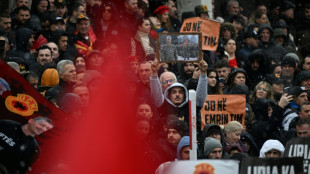 Protesters march in Kosovo, as ex-president's war crimes trial nears end
Protesters march in Kosovo, as ex-president's war crimes trial nears end
-
No pressure on India opener Abhishek after two ducks, says coach

-
 Sakamoto eyes figure skating gold in Olympic farewell
Sakamoto eyes figure skating gold in Olympic farewell
-
Pereira 'trusts' Forest owner Marinakis despite three sackings this season

-
 AI 'arms race' risks human extinction, warns top computing expert
AI 'arms race' risks human extinction, warns top computing expert
-
Israeli bobsleigher dismisses Olympics 'diatribe' by Swiss TV commentator

-
 Supreme leader says Iran can sink US warship as Geneva talks conclude
Supreme leader says Iran can sink US warship as Geneva talks conclude
-
Australia, Ireland out of T20 World Cup as Zimbabwe qualify after washout

-
 Greece experts to examine Nazi atrocity photos find
Greece experts to examine Nazi atrocity photos find
-
Los Angeles mayor calls for 2028 Olympics chairman to step down over Epstein files

-
 Evenepoel takes UAE Tour lead with time-trial win
Evenepoel takes UAE Tour lead with time-trial win
-
Oil prices rise as Trump ramps up Iran threats


Trump tariff plan brings Hollywood's struggles into focus
Donald Trump's proposal to put 100 percent tariffs on foreign movies left many filmmakers scratching their heads. But it did highlight a problem plaguing Hollywood: cinema is rapidly abandoning its long-time home.
For decades almost every film that hit US theatres -- as well as most of what was on TV -- emanated from a handful of movie lots in the sun-soaked capital of America's entertainment industry.
Actors, stunt performers, costume designers, set builders, editors and special effects wizards flocked to Los Angeles, where they worked with hundreds of thousands of drivers, caterers, location managers, animal handlers and prop wranglers to produce thousands of hours of output every year.
The city boomed from the 1920s onwards because it was an industry town with a virtual stranglehold.
Not any more.
"The Movie Industry in America is DYING a very fast death," Trump blared on his social media platform over the weekend.
- All-time low -
The number of shooting days in Los Angeles reached an all-time low last year -- lower even than during the Covid-19 pandemic, when filming shut down completely.
Less than one-in-five film or TV series broadcast in the United States was produced in California, according to FilmLA, an organization that tracks the movie industry.
"On-location production in Greater Los Angeles declined by 22.4 percent from January through March 2025," it said in a report, with film and TV production both down 30 percent year-on-year.
Southern California's high costs -- including for labor -- are a problem for studios, whose margins are small, especially as fewer people are prepared to shell out for pricey cinema tickets, preferring to watch titles at home.
As revenue pressures mount, production houses are turning to filming opportunities abroad that offer them savings.
And there is no shortage of countries courting them: Britain, France, Germany, Australia, Hungary, Thailand and others all offer tax incentives.
The temptation to film abroad only increased during the Hollywood actors' and writers' strike in 2023, said entertainment lawyer Steve Weizenecker, who advises producers on financial incentives.
"During the strikes, I had production that went to the UK, that went to France, Italy and Spain, because they couldn't shoot here," he told AFP.
"And so the concern now is how do we bring that back?"
Toronto, Vancouver, Britain, Central Europe and Australia now all rank above California as preferred filming locations for industry executives.
Competition has never been more fierce: in 2024, 120 jurisdictions worldwide offered tax incentives for film and TV production, almost 40 percent more than seven years ago.
- Canada first -
Canada introduced a tax break for film and TV productions as early as 1995.
"That was when the term 'runaway production' started being thrown about, because suddenly producers did not have to shoot in California or New York," Weizenecker said.
Canada's success has since spawned competition between dozens of US states.
Georgia, where many Marvel superhero films are shot, has offered a tax credit since 2005. New Mexico, the setting for drug drama "Breaking Bad," has been doing the same since 2002. And Texas, which has offered tax breaks since 2007, wants to increase its budget allocated to such funding.
"Much like Detroit lost its hold on the auto industry, California has lost its dominance, mostly due to the arrogance of not understanding there are always alternatives," Bill Mechanic, a former Paramount and Disney executive, told Deadline.
State officials, prompted by the cries of anguish from Hollywood have belatedly begun to take notice.
Last year, California Governor Gavin Newsom called on lawmakers to double the money available to the state's TV and film tax credit program.
California currently offers a tax credit of up to 25 percent that can be used to offset expenses including the cost of hiring film crews or building sets.
Two bills trundling through the legislature could increase it up to 35 percent of qualified expenditures, and would expand the kind of productions that would qualify.
Newsom reacted to Trump's tariff suggestion with a counter-proposal for a $7.5 billion federal tax credit that would apply nationwide.
Whether or not the Republican would be keen to support an industry he views as hostile and overly liberal remains to be seen, but it would really help, according to George Huang, a UCLA professor of screenwriting.
"Right now the industry is teetering," Huang told the Los Angeles Times.
"This would go a long way in helping right the ship and putting us back on course to being the capital of the entertainment world."
Y.Nakamura--AMWN
